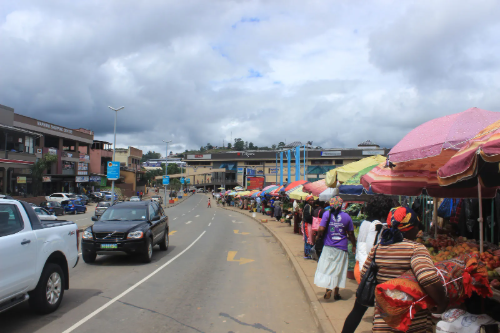Eswatini Market Up 1.9% in Q3 as Focus Shifts to Govt Securities

TLDR
- Eswatini’s capital market posted modest gains in the third quarter of 2025, supported by stronger share prices in select companies and continued investor demand for government securities
- Total market capitalization rose 1.87% to E6.79 billion in September, driven by price gains in Nedbank Eswatini and Greystone Partners
- Equity turnover fell 82% to E5.7 million from E31.7 million in Q2, though year-on-year turnover was up 3%
Eswatini’s capital market posted modest gains in the third quarter of 2025, supported by stronger share prices in select companies and continued investor demand for government securities, according to the Eswatini Stock Exchange’s (ESE) latest quarterly report.
Total market capitalization rose 1.87% to E6.79 billion in September, driven by price gains in Nedbank Eswatini and Greystone Partners. However, market value was still 1.47% lower than a year earlier, reflecting weaker overall activity. The ESE All-Share Index increased to 484.25 points from 475.38 in the previous quarter.
Nedbank’s shares gained 6.67% to E16.00, while Greystone Partners advanced 13.46% to E2.95. SBC Limited rose 2.22%, while Swazi Empowerment Limited (SEL) and Inala Capital declined 5.13% and 14.29% respectively. FNB Eswatini maintained its dominance, representing 29% of total market capitalization.
Equity turnover fell 82% to E5.7 million from E31.7 million in Q2, though year-on-year turnover was up 3%. SBC Limited led trading volumes. In the bond market, corporate bond issuance dipped 1.73% to E1.88 billion as 15 issues matured, while government securities remained in strong demand.
Daba is Africa's leading investment platform for private and public markets. Download here
Key Takeaways
Eswatini’s market performance in Q3 2025 underscores a cautious but stable investment climate. Equity gains were concentrated in a handful of financial and investment firms, suggesting selective investor confidence amid muted overall trading activity. The sharp quarterly drop in turnover points to liquidity constraints or reduced institutional repositioning, even as modest year-on-year growth hints at a gradual return of market participation. The continued appeal of government securities highlights investors’ preference for lower-risk assets, reflecting broader regional trends toward fixed-income instruments amid uncertain economic conditions. Meanwhile, the decline in corporate bonds outstanding signals limited private-sector issuance capacity and refinancing challenges. With FNB Eswatini continuing to dominate market capitalization, the exchange remains relatively concentrated. Sustained policy reforms and efforts to deepen the investor base could be critical to improving liquidity and expanding Eswatini’s capital market beyond its current narrow structure.

Next Frontier
Stay up to date on major news and events in African markets. Delivered weekly.
Pulse54
UDeep-dives into what’s old and new in Africa’s investment landscape. Delivered twice monthly.
Events
Sign up to stay informed about our regular webinars, product launches, and exhibitions.




